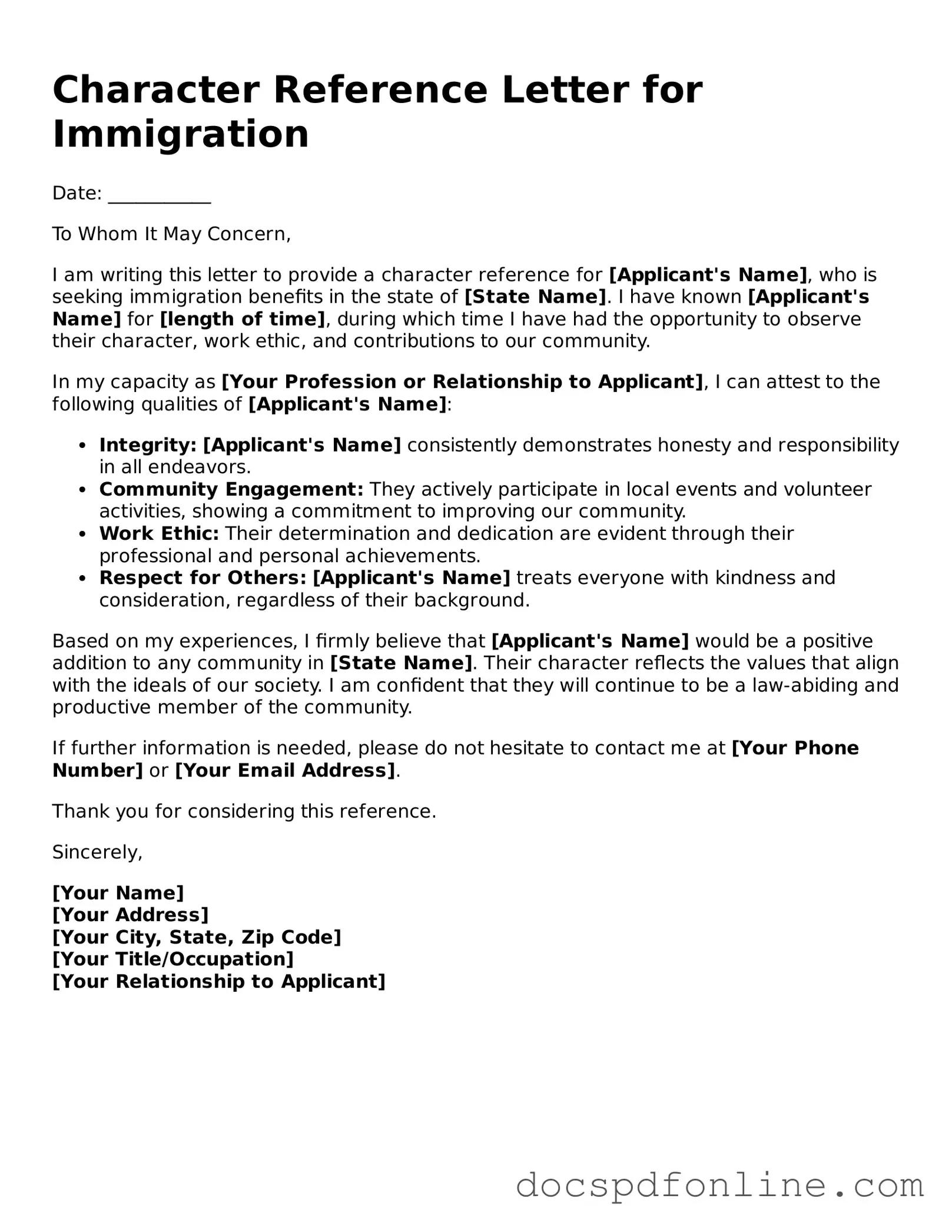Attorney-Approved Character Reference Letter for Immigration Document
The Character Reference Letter for Immigration is a document that supports an individual's immigration application by providing insight into their character and contributions to the community. This letter is typically written by someone who knows the applicant well, such as a friend, employer, or community leader. It plays a crucial role in helping immigration officials assess the applicant's character and eligibility for residency or citizenship.
Launch Editor Now

Attorney-Approved Character Reference Letter for Immigration Document
Launch Editor Now
Save time — finish this form fast
Finish Character Reference Letter for Immigration online — edit, save, download made easy.
Launch Editor Now
or
↓ PDF File
